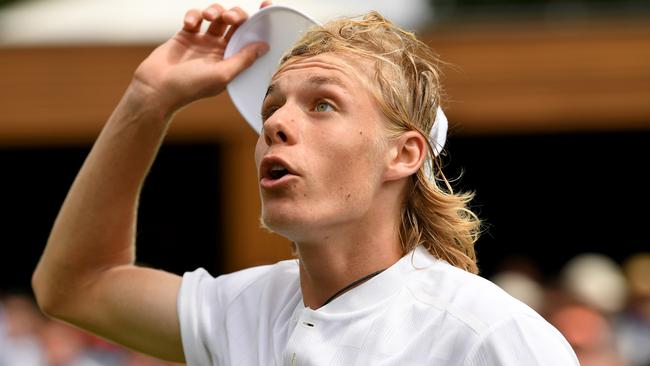Denis Shapovalov, the fiery Canadian tennis player, has once again made headlines by openly criticizing the International Tennis Federation (ITF) for a controversial new rule change set to take effect in January 2025. The rule, which will allow off-court coaching during matches, has sparked debates within the tennis world, with Shapovalov emerging as one of the most vocal opponents.
Here's ads banner inside a post
Shapovalov’s concerns are rooted in his belief that tennis is a sport of individuality and self-reliance, where players must face challenges alone on the court. In a post on X (formerly Twitter), he expressed his sadness over the rule change, stating, “Not just as a tennis player but as a fan of this sport, it’s sad to see this new off-court coaching rule. Tennis is special because you are out there alone. Why are you trying to change the beauty of this game?”
This new rule, which the ITF claims is designed to make the game more fair and enjoyable, has been met with mixed reactions from players, coaches, and fans alike. For many, tennis has long been a test of not only physical ability but also mental agility. The ability to solve problems, adapt tactics, and find solutions independently while under pressure is what separates great players from the rest. Shapovalov’s criticism highlights the fear that allowing off-court coaching could strip away this crucial aspect of the sport, making players more dependent on external guidance rather than their own instincts and skills.
Historically, tennis has been a sport that champions self-reliance. Legendary players like Roger Federer, Rafael Nadal, and Serena Williams have often spoken about the mental challenges they face on the court, where they have to think on their feet and find ways to outsmart their opponents without outside help. Shapovalov’s concern is that the new rule may dilute this fundamental aspect of the sport, turning it into something akin to other team-based sports like soccer, where coaches can step in mid-game to offer guidance.
Here's ads banner inside a post
The 25-year-old Canadian’s frustration with tennis authorities is not new. Over the summer, Shapovalov found himself embroiled in a series of controversies, including a heated exchange with a fan during the North American hard-court season that led to his disqualification. His struggles continued throughout the summer, as he failed to make a significant impact in tournaments like the US Open, Cincinnati, and Montreal. These disappointments have left Shapovalov feeling increasingly frustrated, both with his performances and with the direction the sport is taking.
Shapovalov’s latest criticism comes at a time when many players are questioning the ATP and ITF’s decisions regarding the future of the sport. The introduction of more external influences, like coaching, has led to concerns that tennis may lose the very essence that makes it unique. Shapovalov’s view resonates with many tennis purists who believe that part of the excitement of tennis lies in watching players struggle and ultimately overcome challenges on their own.
While Shapovalov’s stance has garnered support from fans who agree that the rule change is unnecessary, others argue that the introduction of coaching during matches could level the playing field, particularly for lower-ranked players who may benefit from additional guidance. Proponents of the rule suggest that it could make the sport more dynamic and engaging, as players could receive real-time advice to improve their strategies and performances during a match.
Here's ads banner inside a post
However, one of the major concerns is that the new rule could widen the gap between wealthy players who can afford high-profile coaches and those who cannot. Tennis has always had an element of financial disparity, with players from less affluent backgrounds struggling to compete against those who have access to top-tier coaching and training facilities. Allowing off-court coaching could exacerbate this issue, making it even harder for less financially secure players to break through and succeed at the highest levels of the sport.
Shapovalov’s criticism, while perhaps fueled by his own frustrations with the current state of his career, touches on a broader debate about the direction in which tennis is headed. Should the sport embrace changes that make it more like other team-based sports, or should it continue to uphold the values of self-reliance and individual problem-solving that have long defined it?
As the ITF prepares to implement the rule in 2025, it remains to be seen how it will impact the sport. For players like Shapovalov, who believe in the purity of tennis as a test of individual skill and mental strength, the rule change represents a step in the wrong direction. But for others, it could be an opportunity to make the game more inclusive and accessible.
Ultimately, the introduction of off-court coaching is likely to spark ongoing debates in the tennis community, as players, coaches, and fans grapple with the implications of this significant shift. Whether or not it enhances the sport remains to be seen, but one thing is clear: Denis Shapovalov is not ready to let go of the game’s traditional values without a fight.


